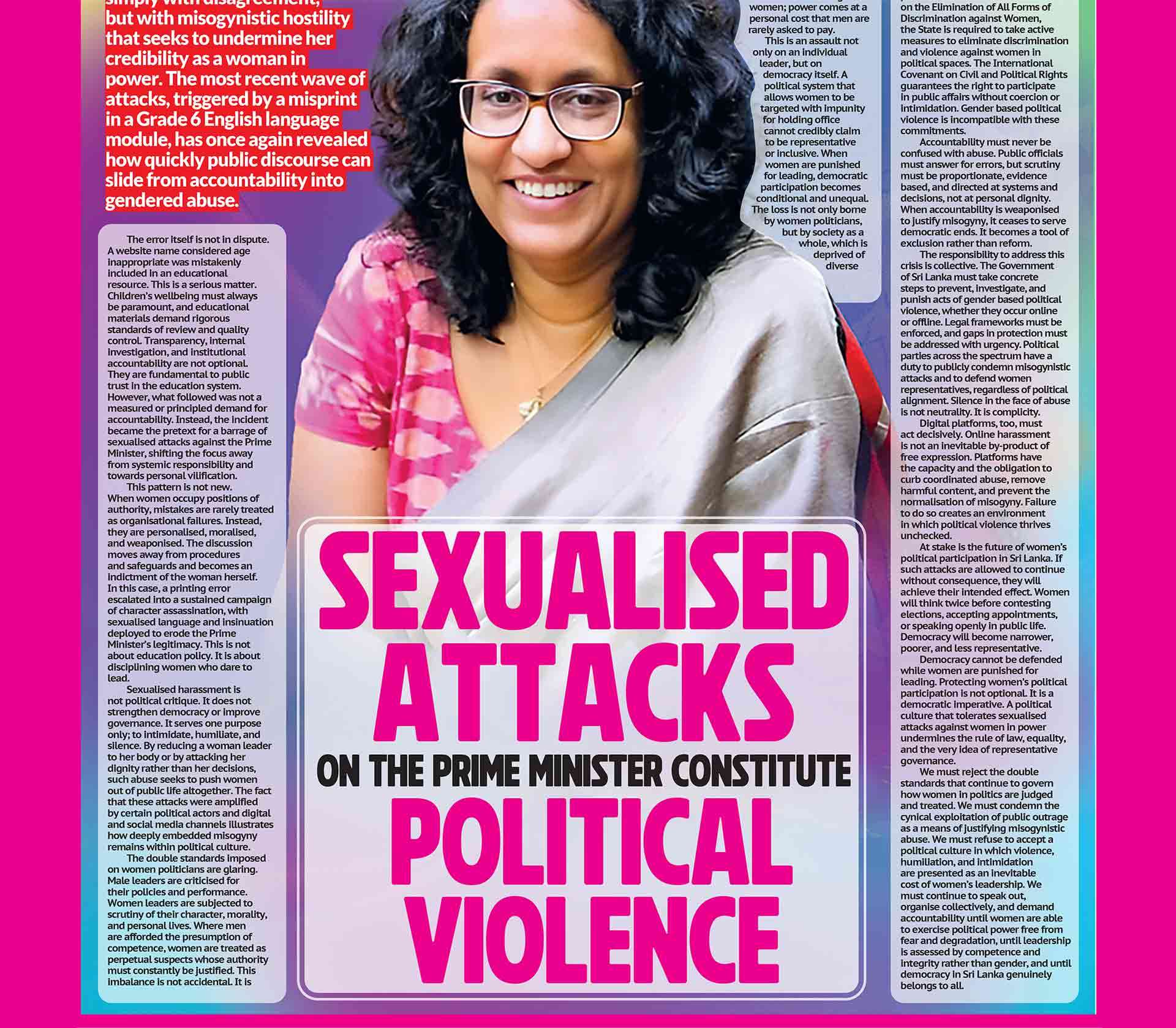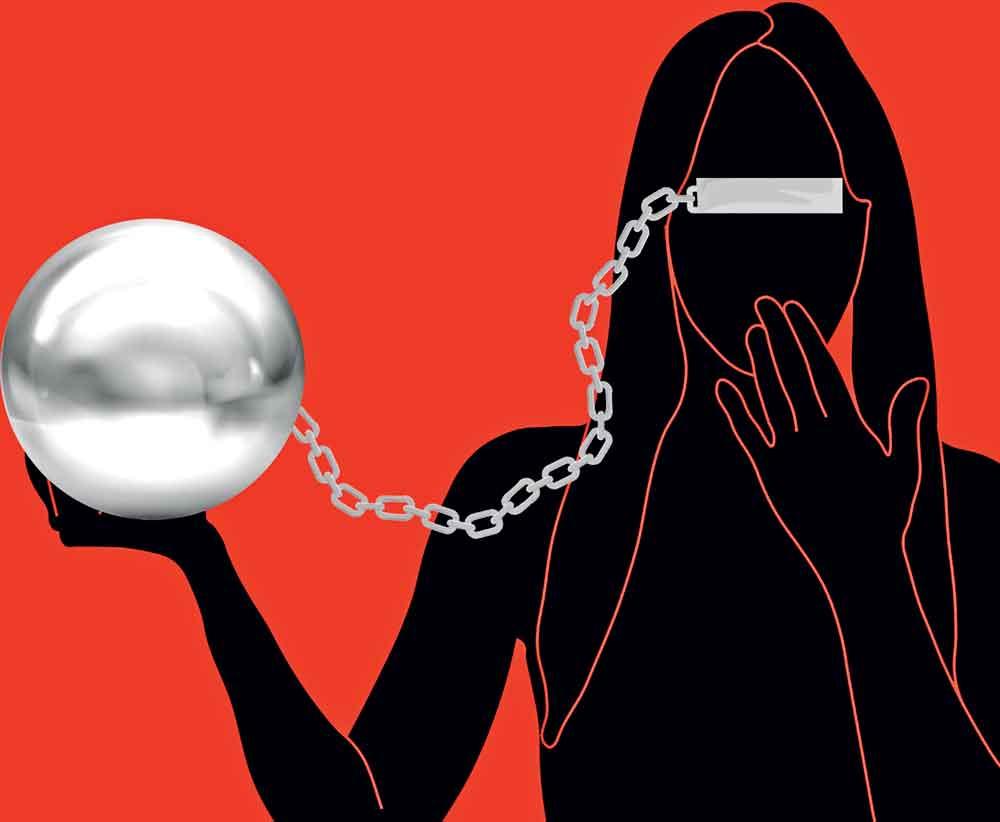
 There are louder ways to be silenced, but my favorite is the quiet kind. A call you’re not copied in. A question disguised as concern. A reminder, subtle but firm: “The author is targeting one particular community in her articles about female genital cutting. There is no evidence. The community she refers to doesn’t practice it.” I suppose they meant well. But why is it always the same choreography? Nothing direct, nothing evidence-based, nothing aggressive, just enough to make you hesitate. The response is not disagreement. Not dialogue. A polite nudge wrapped in moral obligation: “You're generalizing. You're targeting one community. There is no evidence. They don’t do that.” And yet, the scar tissue doesn’t lie. Does it?
There are louder ways to be silenced, but my favorite is the quiet kind. A call you’re not copied in. A question disguised as concern. A reminder, subtle but firm: “The author is targeting one particular community in her articles about female genital cutting. There is no evidence. The community she refers to doesn’t practice it.” I suppose they meant well. But why is it always the same choreography? Nothing direct, nothing evidence-based, nothing aggressive, just enough to make you hesitate. The response is not disagreement. Not dialogue. A polite nudge wrapped in moral obligation: “You're generalizing. You're targeting one community. There is no evidence. They don’t do that.” And yet, the scar tissue doesn’t lie. Does it?
This is not a column to raise awareness. And definitely not about one particular community. It’s not about the graphic retelling of trauma. This is about the structure that allows Female Genital Cutting to exist in all Muslim communities in Sri Lanka that deny it, in countries that medicalize it, in religious groups that sanitize it, and in liberal circles that refuse to talk about it. Because the truth is, FGC doesn’t survive in the shadows. It survives in plain sight through denial, deflection, and strategic silence.
Once denial fails, the focus shifts to discrediting the survivor. We’ve seen it too many times. Survivors are not met with compassion. They are met with suspicion. She’s “unstable.” She’s “traumatized and exaggerating.” She’s “working with outsiders.”
The Strategy of Denial
The first tactic is always denial. Not the confused kind. The strategic kind. The kind that gaslights you while maintaining eye contact.
- “That’s not our practice.”
- “Are there victims from our community that testified this?”
- “Where’s the evidence?”
- “It’s a cultural misunderstanding.”
- “You’re targeting and embarrassing one community”
Never mind that survivors are speaking from lived experience. Never mind that medical records exist. Never mind that girls in the same community continue to be cut. The goal isn’t to engage, it’s to erase. Religious leaders, cultural gatekeepers, and family elders become PR managers. Their brand? Reputation. Their enemy? Memory. The question I want to respectfully put forward to everyone trying to brush this off under a carpet is - who are you protecting when you say, ‘this doesn’t happen here?’ Because it does. And it still is, and it isn’t for good. And what I personally, and what we collectively expect is, for it to end. Completely, from all communities in Sri Lanka.
Character Assassination 101
Once denial fails, the focus shifts to discrediting the survivor. We’ve seen it too many times. Survivors are not met with compassion. They are met with suspicion. She’s “unstable.” She’s “traumatized and exaggerating.” She’s “working with outsiders.” Sound familiar? It should. It’s a global script.
In India, Masooma Ranalvi was called divisive. In The Gambia, Jaha Dukureh was accused of selling out her people. In diaspora communities, survivors are branded as Western puppets. The message is simple. You speak your truth, and we will question your sanity, your loyalty, your faith and eventually remove you from being ‘one of us’ because you stood up for your own right as a woman. Not because your truth is false. But because your truth is inconvenient.
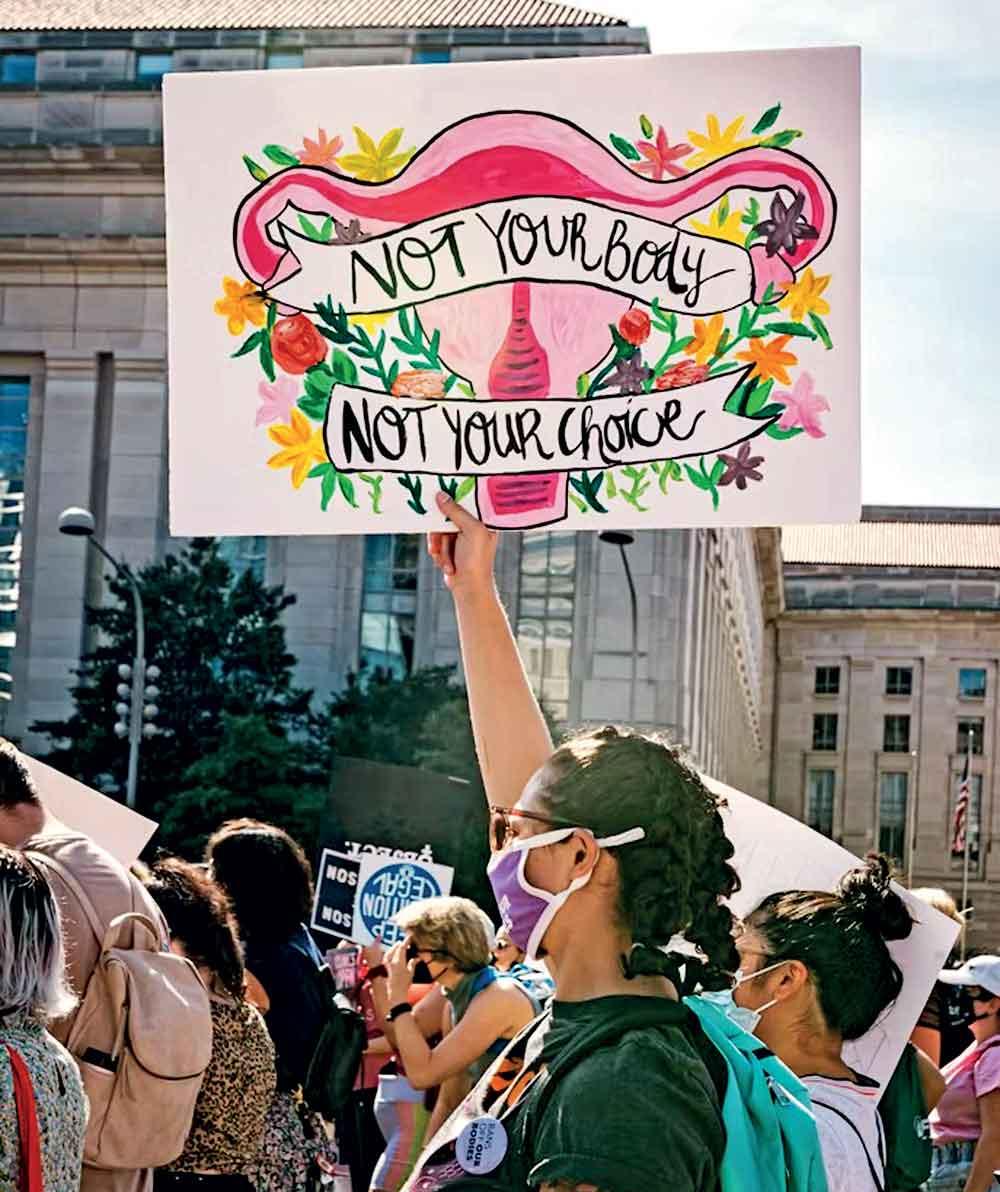
The Economics of Reputation
FGC doesn’t survive because people are evil. It survives because people are afraid. Afraid of shame. Afraid of scandal. Afraid that admitting harm might damage the image of “civilized,” “educated,” “reformed” communities. So, what happens? People lie. People hide. They say it’s not happening. They say it’s symbolic. They say it’s just a small nick. They outsource it to a clinic. They fly someone in. They keep it off the record. Because God forbid respected communities be seen as barbaric. The truth is reputation has become a currency, and women’s bodies are what’s traded to protect it.
Cultural Victimhood as a Shield
Another tactic is claiming cultural victimhood. The moment you criticize FGC, you’re accused of being Islamophobic, anti-tradition, colonized, or Westernized. I’ve discussed this in one of my previous articles with clear evidence and arguments. FGC predates Islam. It predates Christianity. It has nothing to do with any one religion or ethnicity. It is a patriarchal tool dressed up in cultural fabric. So, when an individual or a collective group says, “You’re targeting and attacking one community,” what they really mean is, “You’re exposing something the community has worked very hard to do in secrecy without proper medical or religious backing.” Not something I say, history of FGM, FGC speaks for itself in records, in testimonies, in statistics, in unrecorded silent cries behind closed doors and private chats. You’re not being Islamophobic when you say that cutting girls is wrong. You’re being honest. And honesty terrifies people who depend on silence to retain control.
In India, Masooma Ranalvi was called divisive. In The Gambia, Jaha Dukureh was accused of selling out her people. In diaspora communities, survivors are branded as Western puppets.
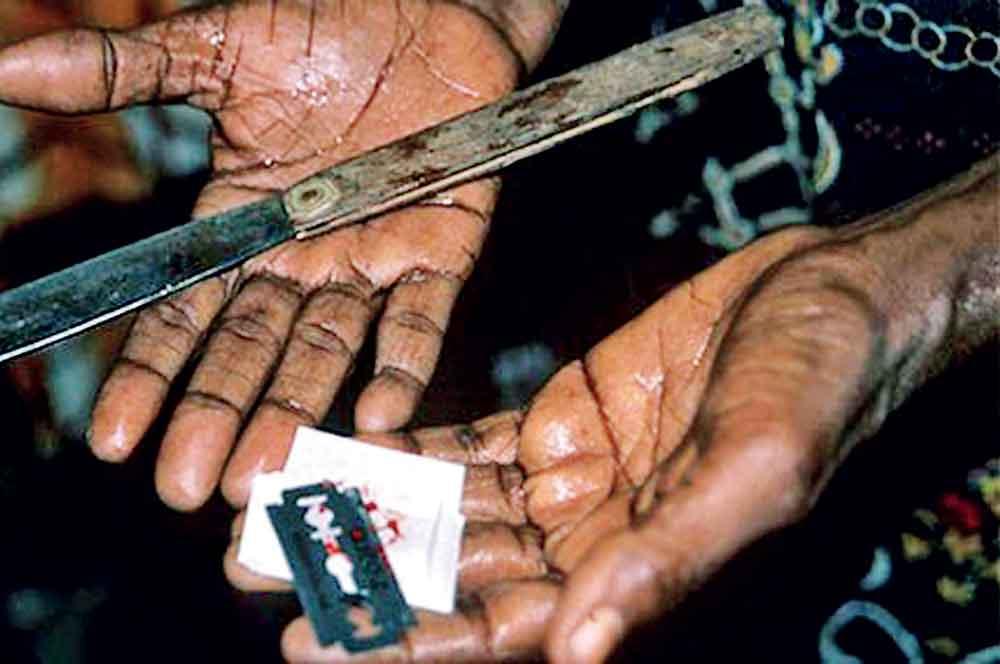
The Soft Betrayal of Silence
This is not the silence of survivors. That’s expected. Conditioned. Taught. Survivors often stay silent because of trauma, fear, shame, or social pressure. It’s a natural response to an experience that is deeply painful and stigmatized. But what we really need to talk about is the silence of allies. The feminists who avoid this topic because it’s “too sensitive.” The progressives who say it’s “not their place.” The community leaders who respond with, “Yes, but not all of us.” Their silence is louder and more damaging than outright denial. Because theirs is a choice; a deliberate decision to protect comfort, reputation, or cultural pride at the expense of survivors. Why does this matter? Because feminists who shy away from this issue under the excuse of sensitivity are avoiding confronting difficult cultural norms that are tied to identity, religion, and community. But sensitivity should mean thoughtful, respectful conversation, not silence. Avoiding the topic allows harmful practices to continue unchecked. It allows these religious leaders and patriarchy as a whole to make decisions on behalf of women.
Progressives who say, “It’s not my place,” often fear being accused of cultural imperialism or disrespect. But true progressivism is about standing for justice and human rights, no matter where those rights are violated. Passing the responsibility away weakens the fight against these practices. Silence here equals complicity. Community leaders who say, “Not all of us,” try to minimize the problem to protect their community’s image. This half-hearted acknowledgment denies the severity of the issue and keeps it hidden. It prioritizes reputation over the safety and dignity of survivors.
This silence from allies sends a clear, harmful message. This issue isn’t important enough to address publicly. It allows harmful traditions to remain invisible while survivors are left hyper visible in their pain and suffering. This is not my individual statement. Research shows. It clearly states that when people with social power stay silent, progress stalls. Harmful practices persist because there’s no strong public pressure to change. In reality, silence from allies isn’t neutral, it actively protects a system that harms vulnerable people. Change won’t come from survivor stories alone. It requires the courage of those with privilege and platforms to speak up, challenge, and dismantle these protective barriers around harmful traditions. No one should be a silent bystander in the face of harm. Silence here is not safety, it is violence by omission. Understanding this is the first step toward real change.
So, Who Actually Benefits from FGC?
Let’s follow the power. Who wins when girls are cut?
- Elders who maintain control over traditions and resist change, ensuring their authority stays unchallenged.
- Men who feel entitled to a woman’s obedience, using this practice as a tool to enforce submission and control female sexuality.
- Religious figures who wrongly equate piety with pain, using faith to justify harmful rituals and silence questioning voices.
- Families who gain social capital by upholding so-called “purity,” securing status, marriage prospects, or acceptance within their community.
- And who loses?
- The girl.
- Always the girl.
She loses her bodily autonomy, her health, her dignity. She suffers physical and psychological harm, often lifelong. She loses the chance to grow up free, whole, and respected. The winners cling to power by sacrificing her. That’s the hard truth we need to face.
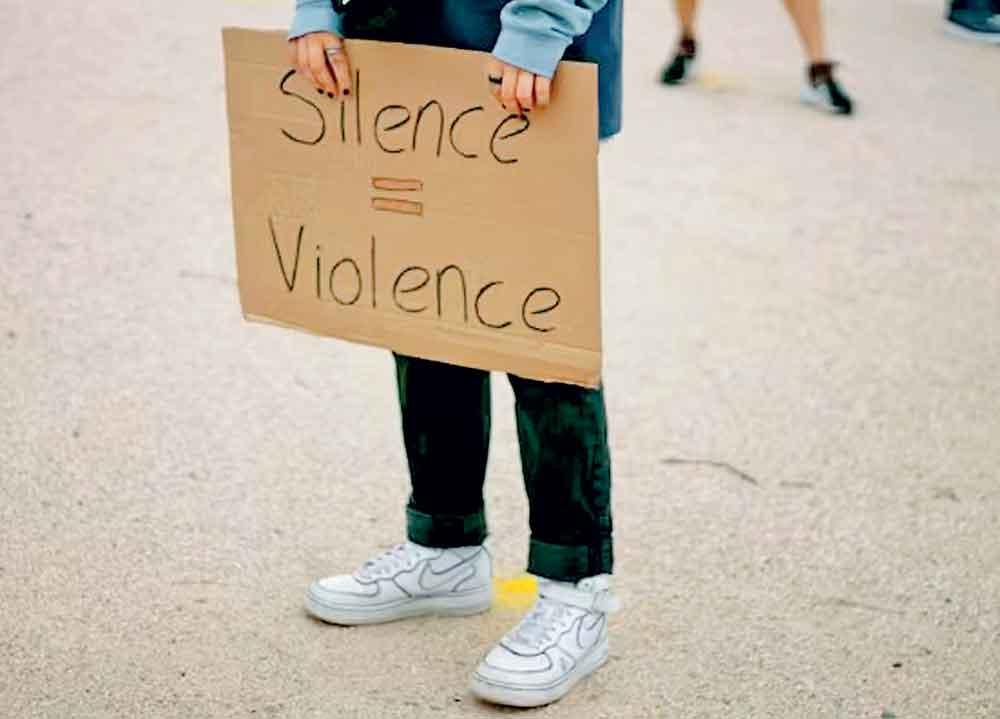
She loses her bodily autonomy, her health, her dignity. She suffers physical and psychological harm, often lifelong. She loses the chance to grow up free, whole, and respected. The winners cling to power by sacrificing her.
If Truth Makes You Uncomfortable, Ask Why
As much as some feel the need to clarify that this practice isn’t performed anymore, what you’re really saying is that you’re not proud it’s still happening, right? Because the facts don’t lie, and records show it’s still done. But this isn’t about calling anyone out or pointing fingers. The point is simple. We know it’s happening, and we’re asking for it to stop. So, if you’re a leader, a parent, or part of a community that knows this is a whisper behind closed doors, something you feel insecure about having exposed in public or on the media, and you want to silence those who speak out, then what you’re really admitting is that it’s shameful. If that’s the case, then your narrative shouldn’t be about silencing voices calling for justice. It shouldn’t be about hunting down women from your own communities who dare to speak about the harm done to them. It shouldn’t be about threatening the media or anyone else shining a light on this issue. Instead, it should be about actually practicing what you preach; peace, respect, and protection. It means creating real, safe spaces where women from your own communities can speak openly about this injustice, without fear or shame. Spaces where they can make decisions about their own bodies and futures, not just have decisions imposed on them by councils or boards dominated by men. And commit, genuinely, to ending a practice that both medical science and religious scholarship have shown to be harmful and invalid. Because respecting women means trusting them to lead the way in their own liberation. This is your chance to lead with honesty and courage. Not to hide behind silence or threats, but to step up and make real change. Because peace doesn’t come from covering up pain, it comes from facing it head-on, together.










